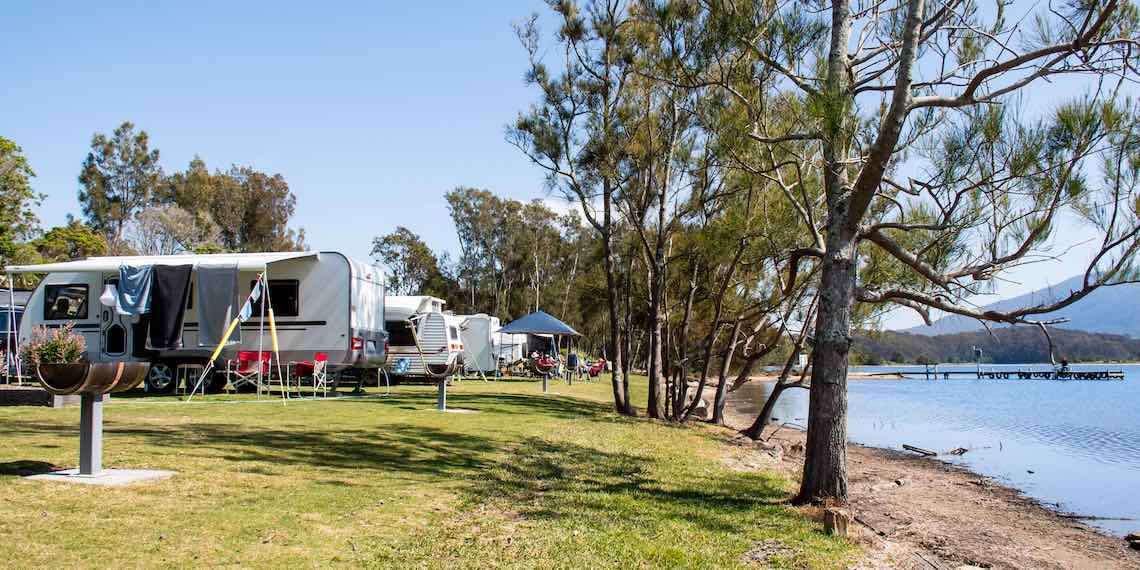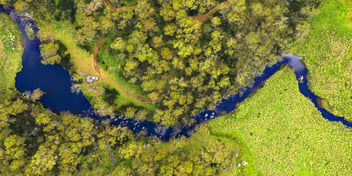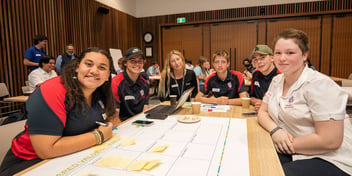How MidCoast Council leverages relationships to improve water security

The importance of bringing the community along on water resilience efforts has been demonstrated by a council’s successful drive to reduce water usage in its caravan parks.
Held last month, the AWA NSW Regional Water Champions Hack featured insights from Water Resilience Officer Nirmal Joy, who spoke about the regional water resilience journey taken by MidCoast Council since the 2019–20 drought.
“We experienced the most severe drought on record. In some areas, for example Gloucester, we had to cart water, which we haven’t had to do before,” Joy said.
“At the time, we established a drought management team, but we also recognised that water security was going to be an ongoing issue for us and would require ongoing conversations.”
Joy said MidCoast Council, which is on NSW’s mid-north coast, took the lessons learned from the 2019–20 drought to begin an ongoing resilience journey, seeking to establish strong relationships with water users to help increase water security in the region moving forward.
“During the drought, everybody had to work together, from the customer care team right through to finance, as we established an emergency response team to identify actions that needed to be taken immediately,” he said.
“Once the drought was over, we conducted a listening tour with the drought management team in order to identify ways of being better prepared for the next event.
“One of the lessons learned was that we needed to fix the holes in our bucket. We know our community responds really well to water restrictions, but we still had opportunities to support some of our larger water consumers to reduce their water use.
“And so our drought response team morphed into an ongoing water resilience team as we set out on our water resilience journey, which involves establishing and continuing important conversations about water within our region.”
Championing change
Joy said MidCoast Council’s water resilience initiatives are focused both internally and externally, and involve identifying and supporting water champions to help inspire ongoing conversation and create changes to engender better water use habits.
“An important step in establishing a water-sensitive region is identifying water champions and enabling spaces for them to come together and collaborate. We’ve started with this focus, both internally and externally,” he said.
“We began with an internal awareness journey, generating deeper understandings about water security challenges across the world, and what water scarcity means for us. This involved people from different areas within the council, not just the water department.
“We met every six weeks. It was about identifying a set of people who really can lead the conversation internally and make those key changes in our processes.”
Externally, MidCoast Council identified the largest water users in the region and, starting with holiday and caravan parks, began the process of unearthing water champions and fostering supportive relationships.
“For our external focus, we started with caravan parks, as this sector is one of our largest water users, and we have many of these parks in our regions. We set up a community of practice, identifying water champions within the sector,” he said.
“We found that caravan park operators and managers were really keen to save water. There were a lot of people who were really enthusiastic about leading the conversation. We identified 12 caravan park managers and met with them multiple times as a team.
“We got the NSW Caravan and Camping Industries Association on board as well. The whole process involved around 21 caravan parks and we worked together to co-design a water resilience template for each caravan park.”
Joy said starting with this process was an important step in helping MidCoast Council support water reduction initiatives within each park, and to foster strong relationships with water users moving forward.
“We don’t want to just run a workshop and tell people what to do. We want to do much more than create a water resilience template. Water resilience is an ongoing journey and so we need to build ongoing and supportive relationships,” he said.
Starting the conversation
Once each caravan park within MidCoast Council’s service provision area had its own tailored water resilience template, Joy said smart meters were installed to help park managers keep track of how much water their facilities were using.
“We set up smart meters in all the caravan parks and used the data as a platform. Importantly, we approached this relationally. We made it very clear that we were installing smart meters to support the parks, not to police them,” he said.
“We used the daily data to set targets around daily water use. This information was hugely important for our water champions, the park managers, in communicating water-use targets to park users.
“One of our water champions, at one particular park, wanted to take it further and ran his own campaign within the park. He built a wonderful big water drop sign, letting park users know the targets for water savings.
“Setting up the smart meters provided a lot of great opportunities for instigating these types of conversations and awareness.”
Joy said tackling caravan park water reductions is an important step for MidCoast Council because tourism is a leading industry in the region, which is expected to grow.
“Tourism is a big economic driver here. But it’s not always easy to convince people who come and stay for a short time to help us save our water,” he said.
“But the work done by our water champions has been incredible, and our caravan park initiatives have been a big success. We have helped them save 149 megalitres of water since we started nine months ago.
“We will absolutely be continuing this caravan park initiative, and are currently looking into options for a continued research effort around water resilience in holiday parks.”
While efforts to support caravan park water reductions will continue, MidCoast Council’s water resilience team will move on to tackling other larger water users in the region, Joy said.
“Our next external focus will be on dairy farms. We will be taking the same approach, starting with the development of a community of practice and finding our water champions,” Joy said.
“But also, internally we will be taking a look at processes at our own assets to see if we can find opportunities for water reduction practices with the help of smart meters.”


